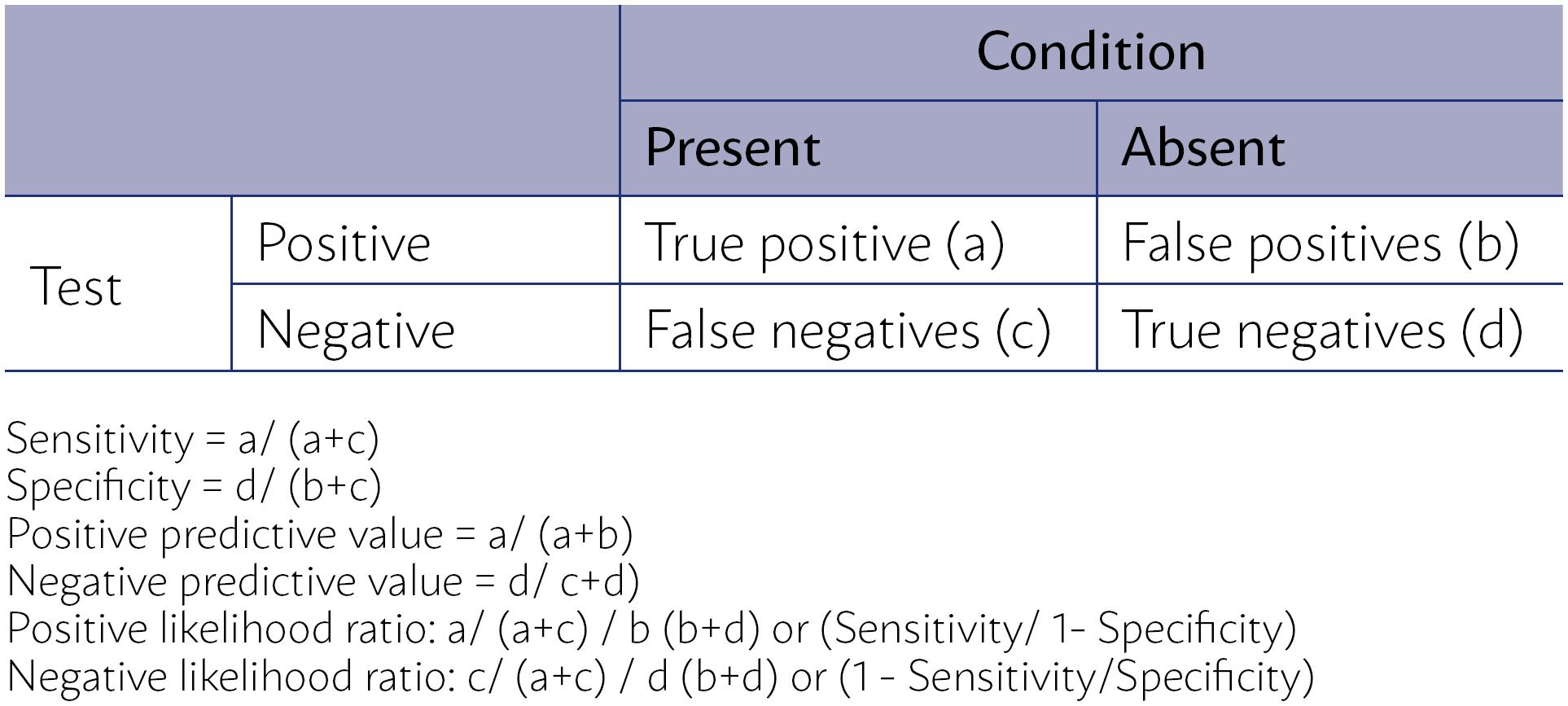SUMMARY
OBJECTIVE:
To assist clinicians to make adequate interpretation of scientific evidence from studies that evaluate diagnostic tests in order to allow their rational use in clinical practice.
METHODS:
This is a narrative review focused on the main concepts, study designs, the adequate interpretation of the diagnostic accuracy data, and making inferences about the impact of diagnostic testing in clinical practice.
RESULTS:
Most of the literature that evaluates the performance of diagnostic tests uses cross-sectional design. Randomized clinical trials, in which diagnostic strategies are compared, are scarce. Cross-sectional studies measure diagnostic accuracy outcomes that are considered indirect and insufficient to define the real benefit for patients. Among the accuracy outcomes, the positive and negative likelihood ratios are the most useful for clinical management. Variations in the study's cross-sectional design, which may add bias to the results, as well as other domains that contribute to decreasing the reliability of the findings, are discussed, as well as how to extrapolate such accuracy findings on impact and consequences considered important for the patient. Aspects of costs, time to obtain results, patients’ preferences and values should preferably be considered in decision making.
CONCLUSION:
Knowing the methodology of diagnostic accuracy studies is fundamental, but not sufficient, for the rational use of diagnostic tests. There is a need to balance the desirable and undesirable consequences of tests results for the patients in order to favor a rational decision-making approach about which tests should be recommended in clinical practice.
KEYWORDS:
Clinical Decision-Making; Diagnostic Tests, Routine; Evidence-Based Practice; Sensitivity and specificity; Predictive value of tests; Diagnostic equipment



